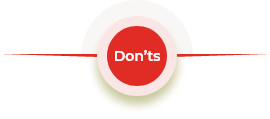Do’s and Don’ts
Cashless Claims in Health Insurance
One of the biggest challenges that we face during the hospitalisation process is paying the required healthcare fees and filling lengthy paperwork during medical emergencies. We can avoid these hassles by opting for the process of cashless hospitalization. Cashless Claims ensure the medical bills are directly settled by the insurance company. To make the most of this benefit, you can claim up to the sum insured limit and the hospitalisation should be at one of the network hospitals listed by the insurer.
Types of Cashless Claims
There are two types of Cashless Health Insurance Claim, namely Planned Hospitalization and Emergency Hospitalization.
1. Planned hospitalization
If you’ve set a date for a certain treatment or surgery and are aware of hospitalisation beforehand, it’s planned hospitalisation. Under such cases, the insured would have to get a pre-authorization from the insurance company for the treatment at least 72 hours prior to hospitalization.
2. Emergency hospitalization
When the hospitalisation is sudden and unexpected, like in case of an accident, it is emergency hospitalisation. Upon admission, the insured needs to show the health insurance card provided by the health insurance provider at least 8 hours after hospitalization and avail the cashless hospitalization facility.
Advantages of Cashless Health Insurance Claim
The benefits of availing cashless health insurance claim are as follows:
- You need not worry about finances in times of medical emergency
- You receive the best-in-class medical treatment from any network hospital
- You receive hassle-free medical treatment immediately and avoid emotional stress
- You avoid lengthy paperwork required at the time of hospital admission
Do's & Don’ts for a hassle-free Reimbursement claim experience

- Choose from a list of nearby network hospitals
- Keep your health insurance ID card handy in the unfortunate event of an emergency.
- Consult your doctor in case of any symptoms of illness
- Reach out to Dedicated Mediclaim SPOCs in case of any concern with hospitalization
- Inform the TPA 72 hours in advance in case of any planned hospitalization or 8 hours post emergency hospitalization
- Be well-informed about the terms and conditions in the policy beforehand
- Share all details beforehand and the time of claim
- Opt for rooms after checking your room rent limits

- Avail Reimbursement Claims at network hospitals
- Self-medicate or self-diagnose using the internet
- Try to contact colleagues or panic to find help
- Inform the TPA after discharge in a planned hospitalization
- Be surprised at the terms and conditions at the time of claim
- Conceal facts as you might face a dispute at the time of a claim
- Opt for facilities or rooms that exceed your approved room rent limit
Reimbursement Claims in Health Insurance
Reimbursement claim happens when you pay for the medical bills yourself and then get the expenses reimbursed from the insurance company. Reimbursement claims occur if you avail treatments at a hospital of choice which is a non-network hospital.
Advantages of a Reimbursement Claim
The benefits of availing cashless health insurance claim are as follows:
- The advantage of this type of claim settlement process is that you do not have to act immediately. If the patient is hospitalized in an emergency, the policyholder might not have enough time to check out hospitals affiliated with the insurance company, which is a necessity for Cashless Claims.
- Another advantage of Reimbursement Claim is that you are free to select the hospital of your choice. As in Cashless Claims, hospitalization in a network hospital is a compulsion.
Do's & Don’ts for a hassle-free Reimbursement claim experience

-
Collect relevant documents for reimbursement common documents including:
• Medical reports
• Bill receipts
• Doctor’s letter for all tests performed
• Discharge certificate
• Duly stamped and signed hospital bills with receipts
• First letter of contact to hospital
• Consultation receipts and as suggested by TPA/Insurer - Always keep liquid money accessible in case the claim falls in the reimbursement category
- Carry all necessary original documents from the hospital to be submitted to the insurance company/TPA for reimbursement claims. Always keep a photocopy as a backup.
- Treatment bills obtained 30 days prior and 60 days after hospitalization are generally applicable for reimbursement, so keep them safely.

- Do not opt for rooms or facilities that have upper limits and various sub-limits to avoid out-of-pocket expenses
- Do not assume that the health insurance cover is for lifetime or does not have a maximum renewable age
- Educate yourself about limits on specific treatments